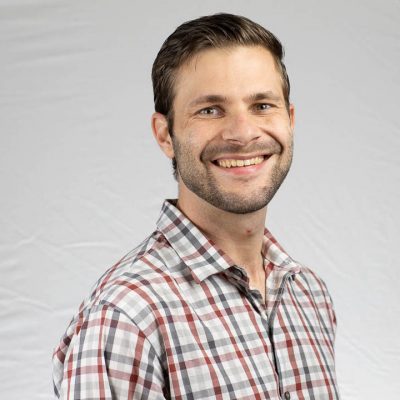Alumnus Spotlight: William Pennock, Ph.D. ’19

February 2, 2021
William Pennock, Ph.D. ’19, is an alumnus of the civil and environmental engineering program at Cornell. He is now an assistant professor in the department of civil and environmental engineering at the New Jersey Institute of Technology.
Where do you work and what is your current title?
I am working at the New Jersey Institute of Technology (NJIT) as an assistant professor in the department of civil and environmental engineering.
Tell us about your current position and what you find rewarding about it.
As a faculty member, I am required to wear (at least) three hats: research, teaching, and service. Each one of those roles is rewarding in itself, but having work to do in all three makes any day feel like a meaningful work day. I particularly enjoy working here because I was an undergraduate student here, and I feel particularly invested in the growth of this university and the development of its students.
How did your participation in the 3MT competition prepare you to succeed professionally? What skills did you learn?
The 3MT competition gave me access to a form of presentation that I had never made before. I had done speeches that I had fully written out and read, ones that I had based on an outline, and impromptu speaking. But, I had never done a TED-style talk that requires complete memorization and choreography, as well as rehearsal. I was familiar with how impactful this type of presentation is, but I didn’t realize how much goes into preparing one. I feel I am only at the beginning of my development as a public speaker in that sense, but 3MT gave me a great chance to practice those skills. I am grateful to Jan Allen and the Graduate School for encouraging our professional development with programs like 3MT and the Writing Boot Camp, which was also instrumental in my development.
The competition also helped me to think about how to communicate my research in a way that is relatable and exciting. My work is not esoteric to begin with, but it is still easy to not see the forest for the trees. 3MT gave me a chance to think more about public engagement, and in my presentation, I gave more attention to history, statistics, and big picture insights while consciously replacing jargon and Greek symbols with plain language. A surprising way that this has benefitted me professionally is that when I was hiring graduate students, a number of them mentioned my 3MT presentation as something they saw that made them interested in joining my lab group.
How have you used these skills in teaching your students as a professor at NJIT?
My students can tell you that my lectures are not like TED talks. Hopefully, my lectures will be more concise and better rehearsed and choreographed as I continue to develop my courses. However, the same principles apply. Even though these students should have the background to take this course, it will be less effective if they feel intimidated or bored by it. I have tried to find connections between the material and current events, engineering feats, and history to help students find connections to the material. I also try to keep my slides simple, with one clear point and only helpful visuals. Reducing equations/derivations to what is essential and giving qualitative insights into them has also proved helpful.
If you could go back in time to the beginning of your graduate career, what advice would you give yourself?
I would have a lot of advice, because I think the skills that make you successful in graduate school are somewhat different from the ones that get you there. Probably the biggest recommendation I would have would be to think long-term. As an undergraduate, you have a flurry of assignments and deadlines pulling you in multiple directions, and managing that well is a challenge. But, in graduate school, there are fewer but more important tasks, some of them on the timescale of years, and it is your responsibility to break them down into shorter milestones and prioritize them by importance rather than by urgency. Along with that, I would say that your graduate degree is what you make it. As an undergraduate, you have to follow a curriculum, and success is often a combination of plodding through that curriculum well while making time for key opportunities like research, internships, and volunteer work. But, as a graduate student, your degree program is one big opportunity, and from day one you should dream about how you want to shape this opportunity and your career. You won’t be able to control everything (e.g., which projects get funded), but you should feel a sense of ownership of your education and your work.
